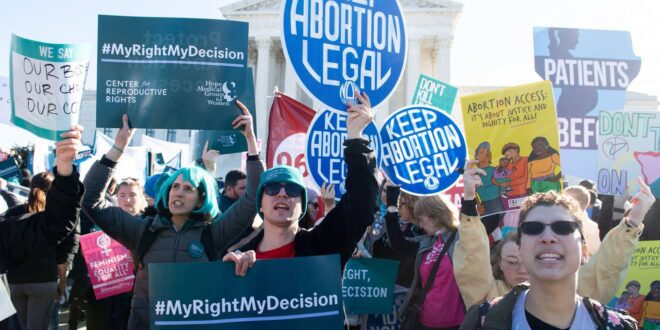Following the Dobbs v Jackson Women’s Health decision, which overturned the landmark Supreme Court decision in Roe v Wade and eliminated abortion as a protected right under the constitution, businesses quickly responded. Despite the decision and its widespread impact, significant progress has been made in the field of reproductive care. The majority of Americans, including nearly three-quarters of adults and 79% of reproductive age women, support access to abortion as a personal choice rather than regulated by law. This fueled a surge of passion, energy, and innovation around the movement, with coalitions, startups, and large corporations vowing to address new restrictions affecting their employees. Fortune 500 companies, such as Apple, Starbucks, Microsoft, and more, spoke out against the decision and promised protections for their workers, including travel reimbursement for reproductive care no longer available in their state of residence. Despite abortion still being banned in 14 states and heavily restricted in some others, activists and business leaders rallied in these states, blocking further bans and achieving unexpected political victories in places like Kansas and Kentucky. Entrepreneurs across the country came up with creative solutions to help those in the most restrictive states access reproductive care, such as the “buy one, donate one” models of women’s health startups like Julie and Stix, and the mail-order abortion pill service of Plan C Pills. Additionally, travel companies like Elevated Access offer private flights for individuals seeking abortion or gender-affirming care. Recently, Representative Ayanna Pressley introduced new legislation, the Abortion Justice Act, to protect patients and providers from criminalization and make care more accessible. The bill includes coverage of travel and lost wages, as well as increased federal spending on abortion care. Support for reproductive health decisions being offered as a choice, not a mandate, extends to various faiths, with activists frustrated by the weaponization of religion in the fight against reproductive care access. The business impact of abortion bans and threats to bodily autonomy on innovation, well-being, and the economy was discussed at the private virtual briefing titled ‘Abortion Is Your Business,’ which brought together professionals and activists across private investing, venture, media, and business. Currently, companies face more risk by avoiding the topic of abortion than by addressing it head-on. The Don’t Ban Equality coalition, comprising 1,000 companies, including Patagonia, Dove, and Etsy, acknowledges that restricting reproductive rights is bad for business and is working to help businesses understand how they can make an impact. Many startups are also contributing to expanded access to reproductive care, such as Stix, which provides free emergency contraception and sexual health education in conservative areas and healthcare deserts. With the absence of federal protections, the private sector is taking action to impact healthcare. The topic of abortion is becoming increasingly important for job-seeking graduates, who prioritize company values.

 Mind Uncharted Explore. Discover. Learn.
Mind Uncharted Explore. Discover. Learn.



